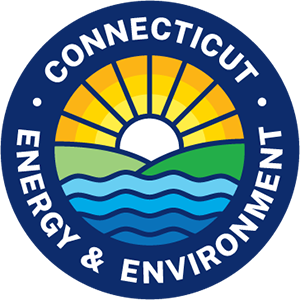Quality Assurance and Quality Control
The Remediation Standard Regulations (RSRs) include numeric criteria used to determine if a potential risk to human health or the environment may exist. The results of analyses performed on environmental media (e.g. soil, water, air) are used to determine if remediation is needed to minimize risk to human health and the environment or if remediation has been completed. Because of the complex nature of environmental media, limitations of analytical methods, characteristics of analytes, and human error, the results of environmental analysis may contain an element of uncertainty and, in some cases, may be significantly biased. Therefore, data may not always be representative of the accurate concentrations of the analytes in the environmental media. It is necessary to evaluate the quality of analytical data in relation to its intended use in order for the environmental professional to make decisions that are supported by data of known and sufficient quality. It is important that both environmental professionals and analytical laboratories implement Quality Assurance and Quality Control (QA/QC) methodologies.
The use of QA/QC parameters provide a level of confidence in the quality of the acquired data. DEEP refers to this level of data confidence as “Reasonable Confidence”. “Reasonable confidence” is achieved when the laboratory has followed the Reasonable Confidence Protocols (RCPs), has described non-conformances, if any, and has provided adequate documentation for a particular dataset to allow the environmental professional or responsible party (i.e., data users) to make judgements regarding data quality for its intended purpose. The concept of Reasonable Confidence and the Reasonable Confidence Protocols are further supported by RCSA section 22a-133k-1(h)(1)(B).
Data users have the option to use non-RCP analytical methods and/or methods that have no published RCP. However, it is important that data users consider the resources that may be required to demonstrate an equivalency with the RCPs. Pursuant to RCSA 22a-133k-1(h)(1)(C), when a non-RCP method is used for demonstrating compliance, the methods and/or protocol must be submitted to DEEP for review and evaluation. DEEP has provided a Demonstration of Equivalency form in the document list below that may be used to provide the necessary information including the laboratory-generated QC data that support the accuracy, precision, and sensitivity of the data.
To assist responsible parties and environmental professionals in evaluating the quality of analytical data in relation to its intended use, DEEP is providing the following guidance documents:
QA/QC Documents
-
Reasonable Confidence Protocols Guidance Document - describes how environmental professionals should use the Reasonable Confidence Protocols to assure data is of known quality.
- RCP Lab Analysis QAQC Certification Form - must not be altered. The primary purpose of the RCP Certification Form is to standardize the questions that the laboratory must answer when determining if a data set meets the requirements for Reasonable Confidence.
- Project Communication Form
- Reasonable Confidence Protocol Equivalency Determination Form – use to demonstrate data quality for analytical methods utilized that do not have a promulgated RCP.
- Data Quality Assessment and Data Usability Evaluation Guidance Document - describes the process for data quality assessment and evaluation to ensure data is suitable for its intended use.
- Importance of Communication Between the Environmental Professional and the Laboratory During the DUE/DQA Process – describes effective communication between environmental professionals and laboratory personnel to achieve data quality objectives.
Reasonable Confidence Protocols for Laboratory Analytical Methods
-
Method 1311 TCLP - December 2006
-
Method 1312 SPLP - December 2006
- Method 6010 Trace Metals ICP-AES - May 2024
- Method 6020 Trace Metals ICPMS - May 2024
- Method 7000 Metals FLAAS/GFAAS - May 2024
- Method 7196 Hexavalent Chromium - May 2024
- Method 7470/7471 Mercury CVAAS - May 2024
- Method 8081 Pesticides - May 2024
- Method 8082 PCBs - May 2024
- Method 8151 Chlorinated Herbicides - May 2024
- Method 8260 Volatile Organics - May 2024
- Method 8270 Semivolatile Organics - May 2024
- Method 9010/9012/9014 Total Cyanide - May 2024
- Method TO-13 PAHs in Air - May 2024
- Method TO-15 Volatile Organics in air - December 2006
- Method TO-17 Volatile Organics - May 2024
- Method APH Air-Phase Petroleum Hydrocarbons - May 2024
- Method EPH Extractable Petroleum Hydrocarbons - May 2024
- Method ETPH Extractable Petroleum Hydrocarbons - May 2024
- Method VPH Volatile Petroleum Hydrocarbons - May 2024
For a general review of the primary changes made to the RCPs, DEEP has provided a summary table of the changes to be used as a quick reference guide. See the table below for both the current and revised RCPs.
Characterization of Petroleum Releases
See analytical methods used to characterize petroleum releases for additional information.
Questions or Comments?
Questions or comments regarding quality assurance and quality control may be directed to Veronica Tanguay or Allison Forrest-Laiuppa.
Content Last Updated May 16, 2024

